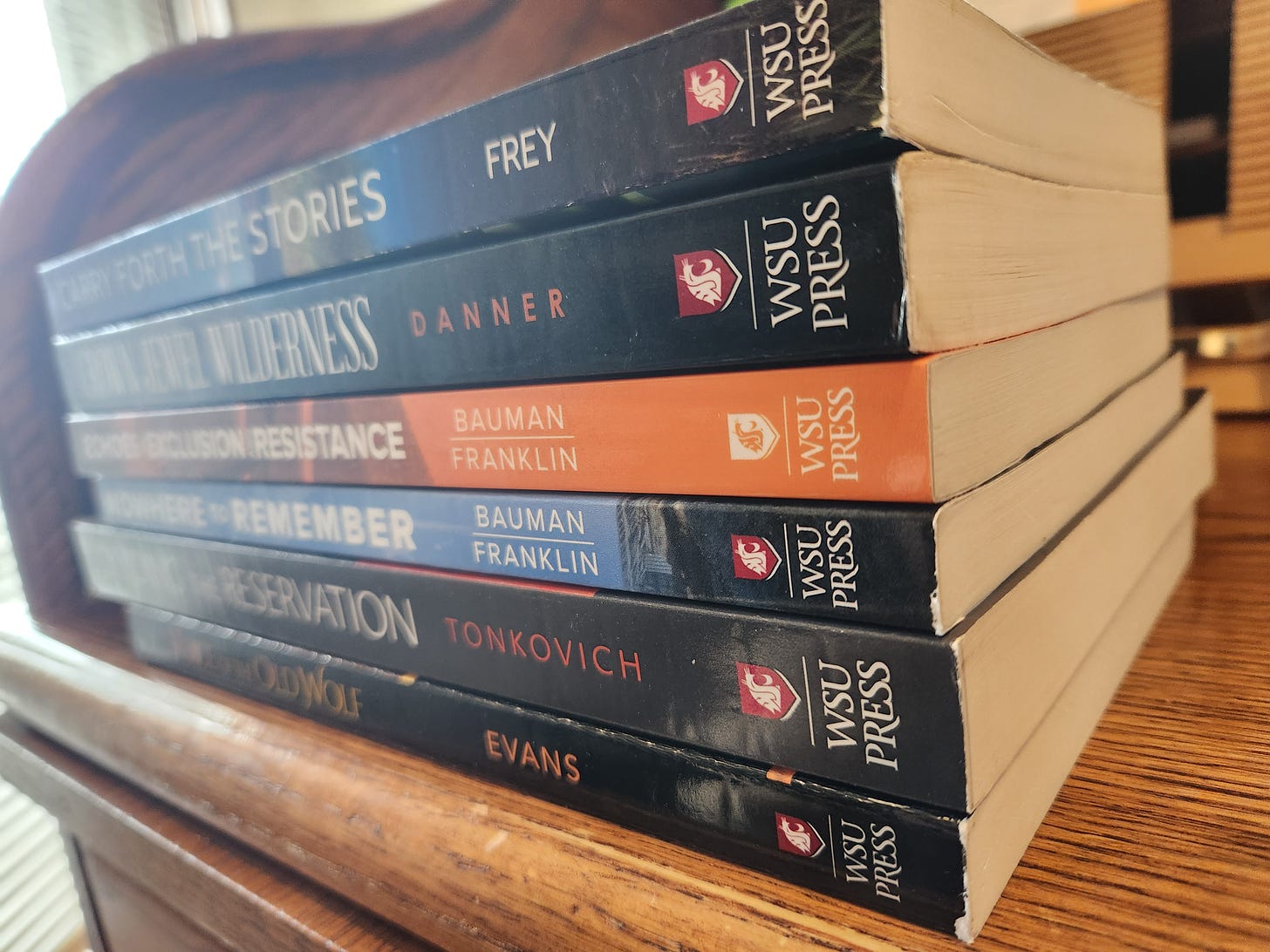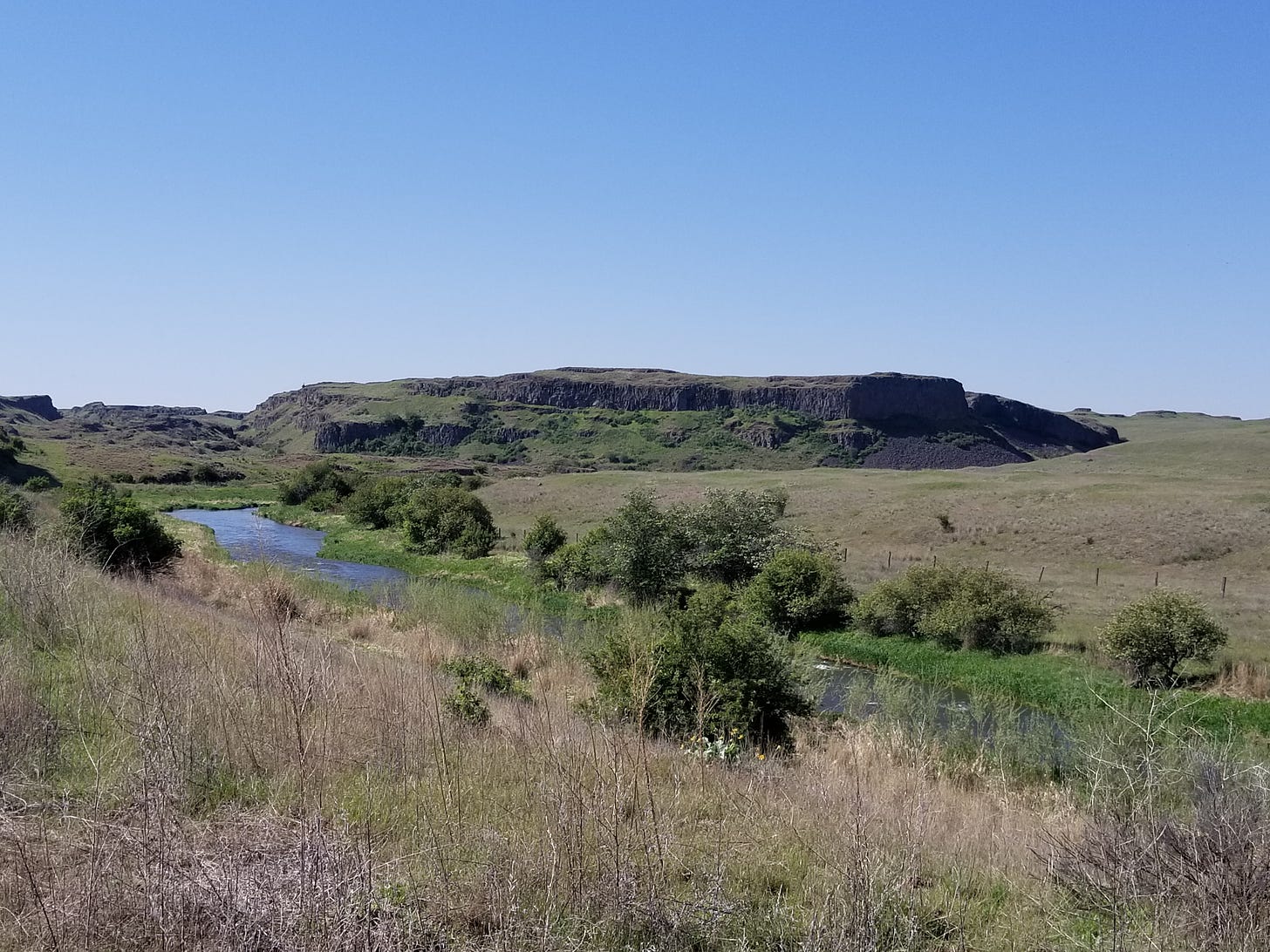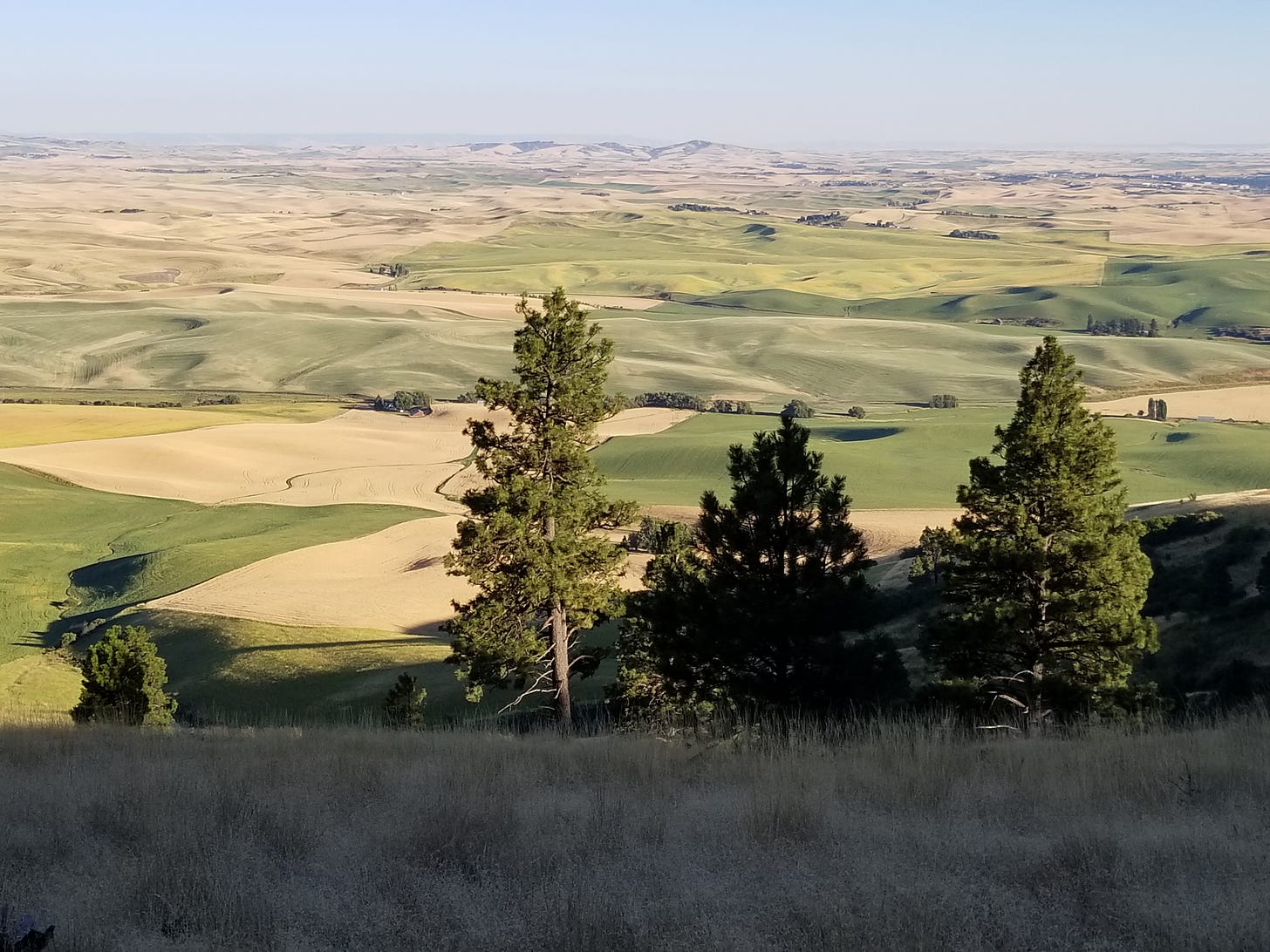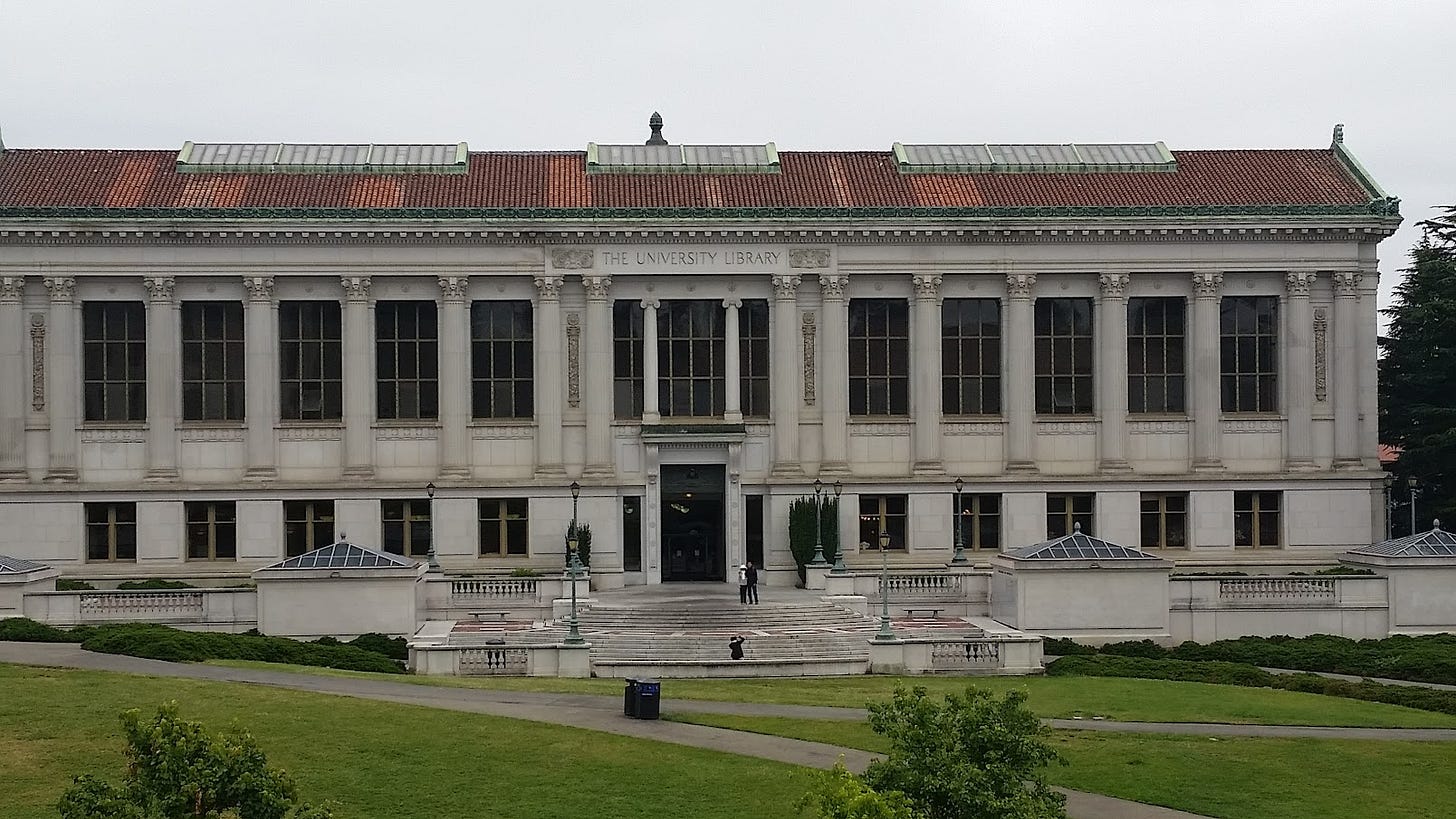I have published three of my five books with university presses. I have lost track how many university presses I have worked with as an anonymous reviewer or how many editors I have professional relationships with. The number of university press books I’ve read certainly reaches into the high hundreds and perhaps breaches the 1,000 barrier. In short, university presses have played a critical role in my learning, teaching, and writing. They are essential and valuable. And vulnerable.
A rapid crisis and its reversal this month pushed me to think a bit about these familiar institutions for The Wild Card this week. Read on!
Crisis
A historian friend of mine emailed two weeks ago, informing me that WSU Press was slated to be closed at the end of the year. She has published an excellent book with the press and has another one underway. The pending closure must have felt personal to her.
But her email, alerting me and others about this along with a call to action, avoided mentioning her personal stake. She wrote instead of the value of the press for publishing books on the Northwest, especially its neglected interior subregion. Specifically, she called out the work of the press with the region’s Indigenous peoples and a growing collection of scholarship focused on this history and contemporary part of the Northwest. (At the moment, for example, one of the featured news stories on the press’s website is about publishing what is believed to be the first poetry collection from the Muckleshoot.)
University presses, especially smaller presses like WSU Press, fill essential roles as homes for scholarship and literature that fill smaller niches, typically connected to the home university. There are few Oxford University Presses that define their realm as the globe. WSU Press is more typical in carving out a regional and thematic focus where it can specialize and secure a lasting scholarly and literary record for a place.
The opening line of the press’s own story reads, “We love our rural location and being so close to the stories we publish.” It continues by defining itself: “Our passion is telling unique, focused stories of the Northwest — lesser-known yet fascinating accounts of people, places, and events that matter in the region’s history or culture and are part of the broad picture of Western expansion.” A lot falls into this self-portrait, much of which could not find a large enough audience for a trade book to succeed. These stories and studies matter to advance scholarship and help residents of this place see themselves in books, in the scholarly record.
But university presses don’t run on air; they run, at least partly, on money. And universities have faced continual budget difficulties in the last generation, stemming from decline public support.
Washington State University has been seeking to shrink its budget, and WSU Press looked like an attractive target. According to news reports, the vice president of Marketing and Communications — the department WSU Press fits under – decided to cut the press to help meet a 7.5% budget cut mandate. The savings would amount to about $300,000, which shows how much a shoestring the operation already operates with.
Part of the statement provided to journalists quoted the VP saying, “We have a fiscal year that we need to plan for, and so this was a decision made for the current fiscal year.”
While acknowledging that economics cannot be ignored, the scholarly and literary enterprise that university presses support are not fiscal year decisions. They are for the ages.
Crisis Averted
Fortunately, the crisis was averted.
The details are still somewhat murky and, one suspects, still emerging, but some money got redirected and WSU Libraries agreed to provide an institutional home for WSU Press. It will be able to continue making books that bring unique insight to the region I call home.
I am grateful, but the event was dismaying.
The email statement from the administrator who made the initial decision to shutter the press said in part:
I am also pleased to confirm that the two remaining employees of the WSU Press will be retained beyond December 31. . . . This decision allows Washington State University to continue delivering on its land-grant mission by supporting scholarly communication and the dissemination of knowledge through the WSU Press.
Both sentences stand out to me.
In the first, the VP reveals there are only two remaining employees. Two! (A third had already been let go this summer as a cost-savings measure, leaving those tasks to the remaining two.) The expertise involved in all phases of acquiring books, editing them, producing them, marketing them, and distributing them and the countless other little things that goes into a successful book will now fall on two people — plus all those freelancers they will have to hire for copyediting and the like.
The second sentence is more revealing. According to it, the press helps deliver the central land-grant mission of the university by disseminating knowledge, which is the main pillar of higher education. Three weeks ago, there was no way to continue those roles. Now they can. One might wonder if they are absolutely essential or basically dispensable.
I don’t mean to pick on WSU or this VP or call undue attention to WSU Press during what must be an exceptionally stressful time. These challenges, decisions, and solutions could be at any number of places around the country. The failures and solutions are endemic for an industry undergoing “disruption,” as we say these days.
Contexts
Producing a university press book is not cheap. One study found that it costs around $35,000 (although there are wide variations by press and types of book, etc.). Adding to the complicated finances, years ago a press could expect something like 70% of its book sales to go to libraries. Now it is closer to 20%. Part of the reason is libraries barely buy books anymore. At the University of California, book purchases amount to only 7% of library budgets. (Those statistics come from this useful article in Inside Higher Ed.)
Derek Krissoff’s Book Work newsletter is a good place to see some real insights into the changing landscape of scholarly publishing. He left his job at West Virginia University Press. His post reflecting on lessons learned from that is insightful.
One part of that essay seems particularly apt here. Krissoff wrote, “I think that university presses’ outward orientation can mesh poorly with their host universities’ procedures for self-evaluation, a mismatch with all sorts of consequences, including lost opportunities for productive communication.”
I want to emphasize again, I have no inside knowledge of the situation at WSU Press. But I would not be surprised if what Krissoff described is part of what happened — fiscal year decisions inside a market department surely look different from the interest of regional scholarship, literature, and sense of place.
Something Better
Somehow, something better needs to exist to support the long-term, fundamental mission of education and scholarship that can never, ever be measured on quarterly statements or through fiscal year budgeting. That goes for university presses, the people who work at and write for them, the institutions that host them, and the larger enterprise they are part of that seeks to develop and share knowledge.
For a start, consider buying a university press book for your next purchase.
Closing Words
Relevant Reruns
I wrote this newsletter about a book published by WSU Press. Actually, the press reprinted a much older book, which is another one of the gifts such presses share. This story, about a legendary WSU ecologist, is one I wrote for the WSU alumni magazine that was published in the same building that houses the press.
New Writing
I have no new writing to share, but I’m working on things. In fact, last week I finished an essay about my favorite author that I look forward to sharing with you when it appears early next year. Some local reporting is coming together, too.
As always, you can find my books, and books where some of my work is included, at my Bookshop affiliate page (where, if you order, I get a small benefit).
Taking Bearings Next Week
I’m back in The Classroom next week (and I’ll probably prep for it by digging into university press books). Stay tuned!







